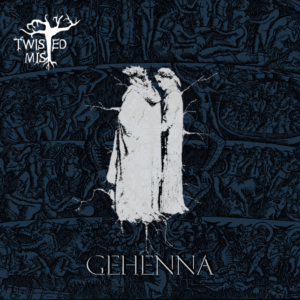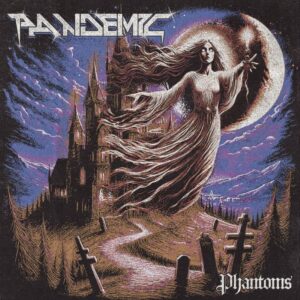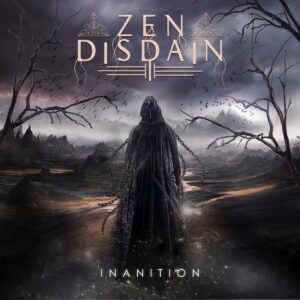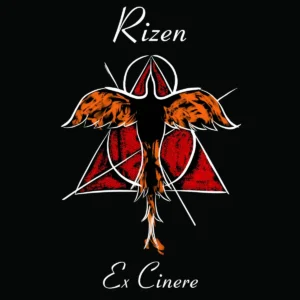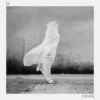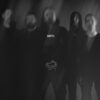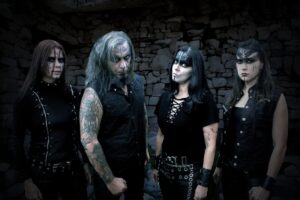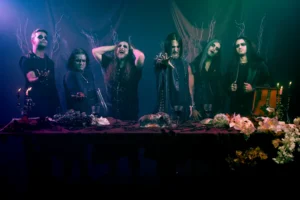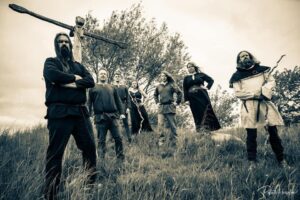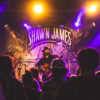GRAHAM OLIVER (Ex-SAXON): "We have been playing selected tracks of these Saxon classic NWOBHM songs to promote the BMG releases and have been blown away at the audience singing along even though some were not even born when they were released."
July 27, 2018
Playing an integral part in the inception of the NWOBHM titansSAXON in the 70's, including its early incarnation SON OF A BITCH, Graham Oliver, the band's previous axeman, was the one of the band's sound markers and image. Since his departure from the band in 1995, he has been running with his fellow bandmate, Steve Dawson, their perspective ofSAXON as Oliver/Dawson Saxon. Following the the series of reissues made by BMG of the 80'sSAXON era, Steinmetal sat down to talk to Mr. Oliver of his perception of the new reissues along with early memories of a glorious era.
Greetings Mr. Oliver, it is a sheer pleasure of having you for this interview for Metal Temple. For me personally, as a fan of the early Saxon, it is quite a thrill. How have you been doing?
Thank you for your questions and I am doing fine thanks you for asking.
Well, we are here due to the latest run of reissues made by BMG Music of the late 70's/early 80's era of your early band Saxon. Currently there have been reissues of the band's albums from 1979 right up until 1988. I wonder, what is your input on these reissues?
I did have copies of the BMG releases of Saxon albums so far both on Cd and Vinyl and I am very pleased as they have done a great job of the ones released so far, I did supply many of the archive photos and adverts for the CD booklets and myself and Steve Dawson oversaw the outtakes digitalisation at Abbey Road studios as well as providing tapes from our own archive that have been used to expand the CDs.
Do you believe those are one of the many keys for the younger generation to savor and take example from?
You mentioned the younger Metal fans and at our concerts and festivals, this year we have been playing selected tracks of these Saxon classic NWOBHM songs to promote the BMG releases and we have been blown away at the audience singing along to every song even though it's obvious that some were not even born when these songs were first released. We find this very satisfying that our music is very relevant in the rock world of 2018.
The way I saw it, while reviewing these three runs of reissues, was that each is actually a somewhat different era of Saxon. Starting from 70's Hard Rock influenced into full bloom NWOBHM and 80's Traditional marketable Hard N' Heavy. Do you agree with that assessment? What is your take on these periods of Saxon in regards to the evolution of its musical direction?
I do agree with your assessment regarding how we progressed as the first album SAXON was our live set in the 70's, where we were supporting bands like The Clash, Whitesnake and Heavy Metal Kids to Ian Gillan band so a mixed time were energy was from the punks and great musicianship and songs from other bands. So we kind of put it all together for instance when I wrote the opening chord to Motorcycle Man, which was inspired by "Pretty Vacant" by the Sex Pistols and "See The Light Shining" was Deep Purple "Highway Star" inspired but we wrote all songs as a collective five people all together it was a very exciting time as we all had different influences, some that came out in the music we just played and wrote what we felt. I would come up with a riff like "Power And The Glory", "Denim And Leather", "Never Surrender", "The Hungry Years", "Wheels Of Steel" etc. and Paul Quinn would have a riff guitar part and all the band collectively worked out arrangement and Vocals with Biff.
Remembering those old 80s studio days and the writing sessions of the material in question, can you talk about an experience that really made the difference for you?
We recorded two albums in The Who's studio in London so we found this very exciting as it had a great vibe. Pete Gill swears that the ghost of Keith Moon visited him during the drum break in "Suzi Hold On", but its the camaraderie of the original line up of the band I recall on these sessions that the chemistry was most prevalent and creative.
Out of the early discography that was lately reissued, which album remained as your main course, your first choice as the one that you think leads Saxon's legacy?
"Decade of The Eagles" is one compilation that's a must as it covers the evolvement of the band through the songs chosen by BMG and must be the definitive discography of classic NWOBHM 80's Saxon legacy.
In your outlook, Saxon's signing with EMI was right move for the band, other than financially of course, or do you think that it actually limited the band's songwriting wishes and visions?
We actually were signed to Parlophone / EMI we had great expectations as this was the Beatles label so we needed distribution in the USA as Carrere record did not have a good distribution in place when we toured with Rush ,ACDC ,Sabbath etc.. We hoped that Capitol EMI would facilitate this which they did but too late for "Wheels Of Steel" / "Strong Arm Of The Law" etc. But in my opinion their choice of producer was not good as they did not understand Saxon at all but it was in the contract that the producer was their choice .
Everybody has been talking about the powerful influence of the twin guitar attack that has been one of the key elements of NWOBHM, for most bands at least, but usually about Judas Priest and Iron Maiden. How do you find your early twin-axe partnership with Paul Quinn, in relation to the early albums? What made it so special to contribute to the Saxon sound and music?
The twin guitars of myself and Paul Quinn were instrumental in the Saxon sound and composition of songs' feel. "Street Fighting Gang" is a great example of the two styles working together. I recall just the two of us at my house working out riffs like the "Hungry Years" my opening riff but Paul's verse riff the two halves made one great and if a solo required a bluesy approach, like "Dallas 1 pm", it was me, or a mind blowing solo like "Ride Like The Wind" then Paul did the solo and these two styles blended well in solos and rhythm .
Mr. Oliver, I wish to thank you for this interview. Your perspective of surely voted as the best era of Saxon has an impact. All the best to your and Oliver / Dawson's Saxon band. Your legacy is bound to live on.
I am very pleased that my contribution to Saxon resulted in Gold and Silver albums with sell-out tours. "Two Nights At Hammersmith" for example that line up changes statistically seemed to affect sales but the foundations we forged then ensure that ODS so others can bring our music to a whole new audience in 2018. At our meet and greets, with no extra charge, we sign BMG releases as much as original versions if not more to a whole new bunch kids, job done
Thank you,
Lior "Steinmetal" Stein
Source:
More results...
